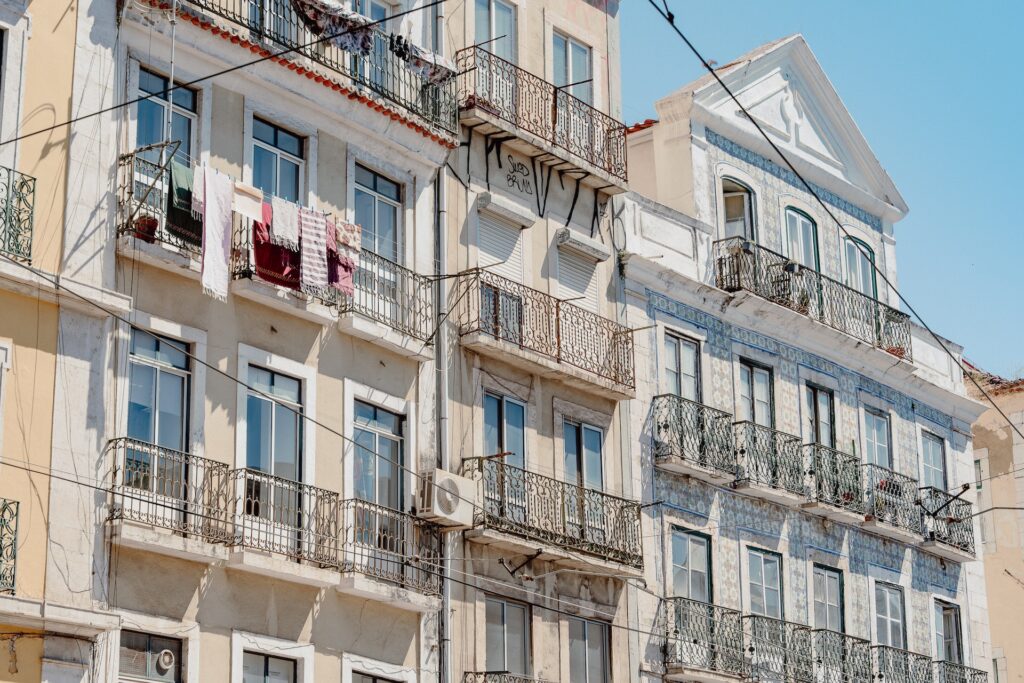With that in mind, applying for a mortgage in Portugal can be quite advantageous. For starters, low-interest rates provide a compelling reason. Moreover, long repayment terms offer convenience. Besides, it offers investment and immigration opportunity as well.
At the end of the day, it’s crucial to do your homework about what is needed and factors at play and choose a reputable lender or mortgage broker that fits bests with your personal circumstances to find what is right for you.
Benefits of taking a mortgage in Portugal
Long Repayment Terms
Mortgages in Portugal Usually have a long term, occasionally allowing the borrower to prolong it up to 40 years. It helps make your monthly payments lower because it means outright costs can be spread over a longer amount of time.
Stability and Predictability
In Portugal fixed-rate mortgages are available that provide the benefit of stability and predictability as borrowers have the option to fix their interest rate for the term of the loan. As a result, this provides borrowers with the ability to more accurately plan for their financial futures and protect themselves from sudden changes in monthly payments.
Investment Opportunity
Buying a property with mortgage in Portugal, is possible to capitalize from a good investment opportunity and the growth of the market that occurs with great stability. Homeownership can lead to financial security and wealth-building over time, as well.

Types of mortgages in Portugal
Fixed-Rate Mortgage
Most people in Portugal use fixed-rate mortgages. This type of mortgage also enables borrowers to fix the interest rate for the overall term of the loan. That means borrowers can easily plan their monthly payments as they will be kept steady throughout the life of the loan and will not go up or down because of interest rate changes.
In Portugal, you are normally able to get a fixed-rate loan for up to 30 years or so and the interest rate will tend to be a bit higher than with variable loans. On the other hand, borrowers who choose fixed-rate mortgages get the peace of mind of a predictable monthly payment that can help them budget and plan more effectively.
Variable-Rate Mortgage
A variable-rate mortgage (also sometimes called an adjustable-rate mortgage) is a type of home loan in which the interest rate you pay rises and falls based on current market rates. That means that borrowers’ monthly payments could go up or down from what they had initially planned.
In Portugal, mortgages at variable rate are usually cheaper than fixed-rate mortgages. As a result, this can make them an attractive choice for borrowers that are comfortable taking on higher risk. But variable-rate mortgages are apt to change, meaning borrowers need to be prepared for the fact that their monthly repayments could rise in time.
However, if you have a variable-rate mortgage in Portugal that is capped, it can only go up so much from the start of the loan to the finish. This way, they are shielded from the increase in their monthly payments, that could occur unexpectedly and significantly.
Interest-Only Mortgage
Interest-only mortgages work this way: for, usually a period of 5-10 years, borrowers have to pay only interest on the loan. This means the mortgage repayments made by the borrower are lower than they would be on a capital and interest mortgage during this time.
As such, they are less common than fixed-rate or variable rate mortgages in Portugal. That said, they may be a good option if you want to keep your monthly payments low while giving yourself time to refinance in the future. However, they also have some risks that borrowers need to be aware of.
Once the interest-only period is over, you have to make payments that include both principal and interest on your loan. As a result, you may be forced to incur monthly payments much pricier.

How to apply for a mortgage in Portugal?
1. Research Lenders
The start is to look for lenders that provide credits to foreigners in Portugal. You have the internet, recommendations from real estate agents and mortgage brokers.
2. Gather Required Documentation
Prepare the necessary documents, usually a valid passport, proof of funds, bank statements and a credit report.
3. Submit Application
When do you apply?. — Assuming you’ve found a mortgage lender, picked up your documentation, and filled out the mortgage application. This process then usually entails for entering in personal details, employment information as well as details about the property you want to buy.
4. Obtain a Mortgage Offer
You will receive a mortgage offer where the lender sets out all conditions of the loan, including interest rate, payment plan and any extra payments.
5. Property Valuation
When they approve the mortgage, the lender usually needs to have a valuation of the property carried out to demonstrate that it is worth what they are lending.
6. Sign the Mortgage Agreement
When the property is valued and you are happy with or have queried the terms in the mortgage offer, you will then sign the Mortgage Deed.
7. Finalize the Purchase
After the mortgage agreement is signed, you can proceed with finalizing the purchase of the property. Consequently, this typically involves transferring the funds to the seller and registering the property in your name.

Portuguese Mortgage Rates
Mortgage rates in Portugal typically sit anywhere between 1% and 3% and this will be determined based on factors such as mortgage type (fixed or variable), the length of the loan, and your own personal circumstances. Rates are for illustrative purposes only and are not a reflection of current ratesørocity.com Rates could be marginally higher for non-resident buyers compared to residents. To get exact figures, you should check with your local banks or mortgage brokers.
What is the maximum loan-to-value and down payment for Portuguese mortgage?
The loan-to-value (LTV) ratio for a foreigner in Portugal will depend on various factors. Notably, these factors include the lender’s policies, the borrower’s financial situation, and the property’s value.
In Portugal, foreigners are permitted to apply for a mortgage to purchase a property. Nevertheless, lenders may demand a higher deposit from foreign borrowers in comparison to Portuguese citizens.
Usually, lenders require a minimum deposit of 20% of the property’s value from foreign borrowers. In contrast, Portuguese citizens can secure a mortgage with a deposit as low as 10% or even 5% in some cases. Therefore, the maximum loan-to-value ratio for a foreigner in Portugal is typically around 80%.
For example, if a property is valued at €200,000, a foreigner may be able to borrow up to €160,000 (80% of the property’s value). Consequently, they will need to make a deposit of €40,000 (20% of the property’s value).
Portugal Mortgage Calculator
You can easily find online mortgage calculators specific to Portugal by searching on the internet. These calculators typically require you to input information such as the loan amount, interest rate, loan term, and any additional fees or charges. They then provide you with estimates of your monthly mortgage payments, total interest paid over the life of the loan, and other relevant details.
Many Portuguese banks and financial institutions also offer their own mortgage calculators on their websites, which may provide more accurate results tailored to their specific mortgage products and terms.
In a mortgage simulation, you would typically include the following variables:
- Loan Amount: The total amount borrowed for the mortgage.
- Interest Rate: The annual interest rate applied to the loan.
- Loan Term: The length of time over which the loan will be repaid (e.g., 15 years, 20 years, 30 years).
- Type of Interest Rate: Whether the interest rate is fixed or variable.
- Down Payment: The initial payment made by the borrower towards the purchase price of the property.
- Property Value: The total value of the property being purchased.
- Monthly Payment: The amount the borrower will pay each month towards the mortgage.

Best Portuguese mortgages for non-residents
The best Portuguese mortgages for non-residents can vary depending on individual financial circumstances, preferences, and eligibility criteria. However, some banks and financial institutions in Portugal are known for offering competitive mortgage options to non-residents. Here are a few that are often considered:
Banco Português de Investimento (BPI): BPI is one of the largest banks in Portugal and offers mortgage solutions tailored to non-residents. They provide personalized assistance and competitive interest rates.
Millennium bcp: Millennium bcp offers mortgage options for non-residents looking to invest in Portuguese property. They provide flexible terms and may offer attractive interest rates.
Caixa Geral de Depósitos (CGD): CGD is a state-owned bank in Portugal and offers mortgage solutions for non-residents. They may have specialized products and favorable terms for foreign buyers.
Novo Banco: Novo Banco provides mortgage options for non-residents interested in purchasing property in Portugal. They offer personalized service and competitive rates.
Santander Totta: Santander Totta offers mortgage solutions for non-residents, with various options to suit different needs. They may offer attractive interest rates and terms.
Costs of the mortgage in Portugal
When obtaining a mortgage in Portugal, there are several costs involved that borrowers should be aware of. These may include:
- Arrangement Fees: Around €300.
- Valuation Fees: Around €280.
- Notary and Registration Fees: Around €1,500
- Stamp Duty: 0,8% of property purchase cost
- Transfer tax. From 2 to 8% of the purchase property cost.
Documents to provide to get a mortgage in Portugal
Non-residents will typically need to provide the following documentation to support their mortgage application:
- Passport
- Portuguese Tax Number (NIF)
- Proof of Address (copy of the tenancy agreement)
- Credit report
- Last 3 pay slips
- Recent bank statements
- Most recent tax returns
- Floorplan of the apartment /house
Costs of buying property in Portugal
When buying property in Portugal, there are several costs to consider in addition to the purchase price. Moreover, here are some of the most common costs:
| Costs | |
| Property transfer tax – IMT (8%) | 15,438€ |
| Stamp duty (0,8%) | 2,800€ |
| Notary fees | 1,250€ |
| Registration fees | 250€ |
| Legal fees | 2,500€ |
| Total Costs | 21,988€ |
*IMT calculation: (350.000,00€ x 8%) – 12.562,06€ = 15.437,94€
Why to work with a mortgage broker for buying property in Portugal?
Access to a wider range of products
Different lenders, including those that may not be available to the general public. Additionally, this can help you find a mortgage product that best suits your specific needs and financial situation.
Expert advice and guidance
A mortgage broker can provide you with expert advice and guidance throughout the mortgage process, from helping you understand the different types of mortgages available to you, to helping you find the best mortgage rates and terms for your situation.
Time-saving
And, moreover, this mortgage broker can save you time by doing the research and shopping around for you, enabling you to focus on other important aspects of your life.
Understanding Foreign Clients
Also mortgage brokers who specialize in working with international clients, like those purchasing property in Portugal, possess a deep understanding of the unique challenges and considerations that arise in such situations.
Negotiating power and better terms
Those mortgage brokers have negotiating power with lenders, which can help you get better mortgage rates and terms than if you were to go to the lender directly.
Personalized service
A mortgage broker can provide you with personalized service and attention, helping you navigate the often complicated mortgage process and answering any questions or concerns you may have along the way.
No additional costs
Furthermore, those mortgage brokers have negotiating power with lenders, which can help you get better mortgage rates and terms than if you were to go to the lender directly.
This means that as a borrower, you generally do not have to pay any additional fees or charges for their services.
Still have questions? Check out our video!
For more videos about investing or moving to Portugal, explore our YouTube channel here: YouTube Channel Portugal Residency Advisors.
Why work with us?
At Portugal Residency Advisors, we collaborate with carefully chosen premium mortgage brokers in the market. We streamline the entire process of applying for a mortgage, handling all the paperwork from obtaining your NIF number to opening your bank account, and liaising with our mortgage partners on your behalf.
Working with us can save you time, effort, and even money in the long run. We’ll help you avoid common mistakes and pitfalls that many expats or first-time home buyers encounter, and provide peace of mind throughout the entire process. So if you’re ready to find your dream home, consider partnering with us to make the process smooth and stress-free.
Frequently Asked Questions About How to apply for a mortgage in Portugal as a foreigner
Can foreigners apply for a mortgage in Portugal?
Indeed, foreigners can apply for a mortgage in Portugal. Moreover, the process is open to both residents and non-residents.
What are the general requirements for applying for a mortgage in Portugal as a foreigner?
The specific requirements may vary between banks; however, generally, you will need the following: A valid passport, proof of income, proof of residence, and a Portuguese fiscal number (NIF).
Can I apply for a mortgage in Portugal before moving there?
Certainly, it is possible to apply for a mortgage before moving to Portugal. Additionally, many banks offer online application processes that allow you to initiate the mortgage application remotely. Alternatively, you can choose to work with a mortgage broker.
How much can I borrow for a mortgage in Portugal?
The amount you can borrow depends on several factors, including your income, creditworthiness, property value, and the loan-to-value ratio (LTV) set by the bank. Typically, banks may lend up to 80% of the property’s value for non-residents and up to 90% for residents.
What is the minimum down payment required for a mortgage in Portugal?
Typically, this minimum down payment requirement is around 20% of the property value for non-residents. Nevertheless, this may vary depending on the bank and the specific circumstances of the borrower.
Is it advisable to use a mortgage broker when applying for a mortgage in Portugal?
Using a mortgage broker can be beneficial, especially for foreigners navigating the Portuguese mortgage market. A broker can help you find suitable loan options, negotiate terms on your behalf, and guide you through the application process.
Can I get a mortgage in Portugal if I am self-employed?
Yes, self-employed individuals can apply for a mortgage in Portugal.




